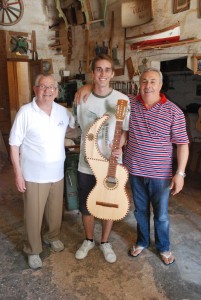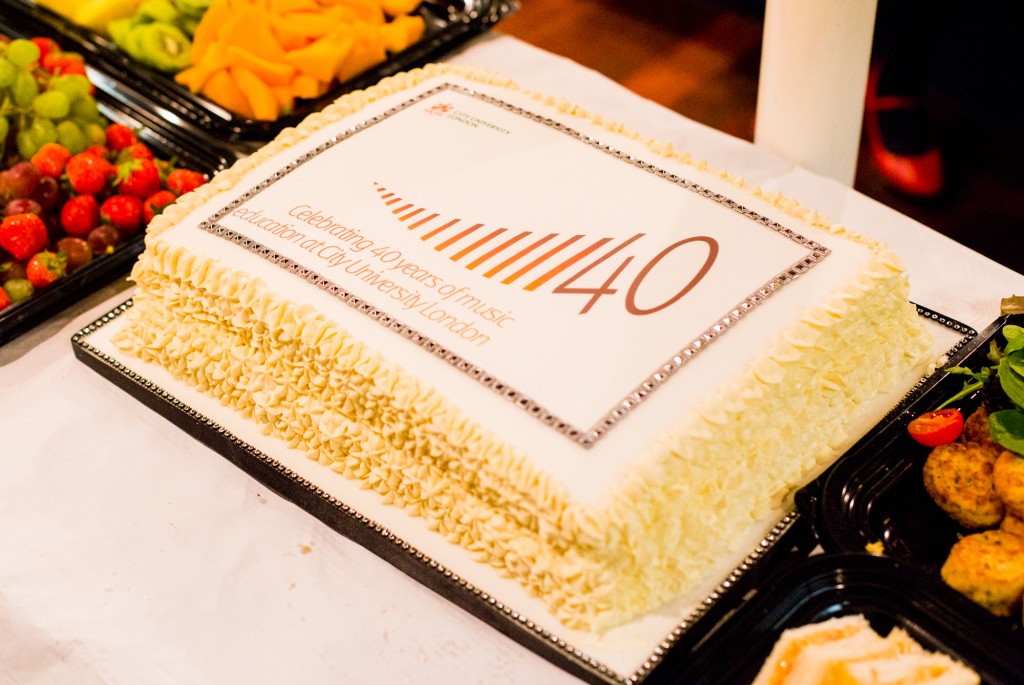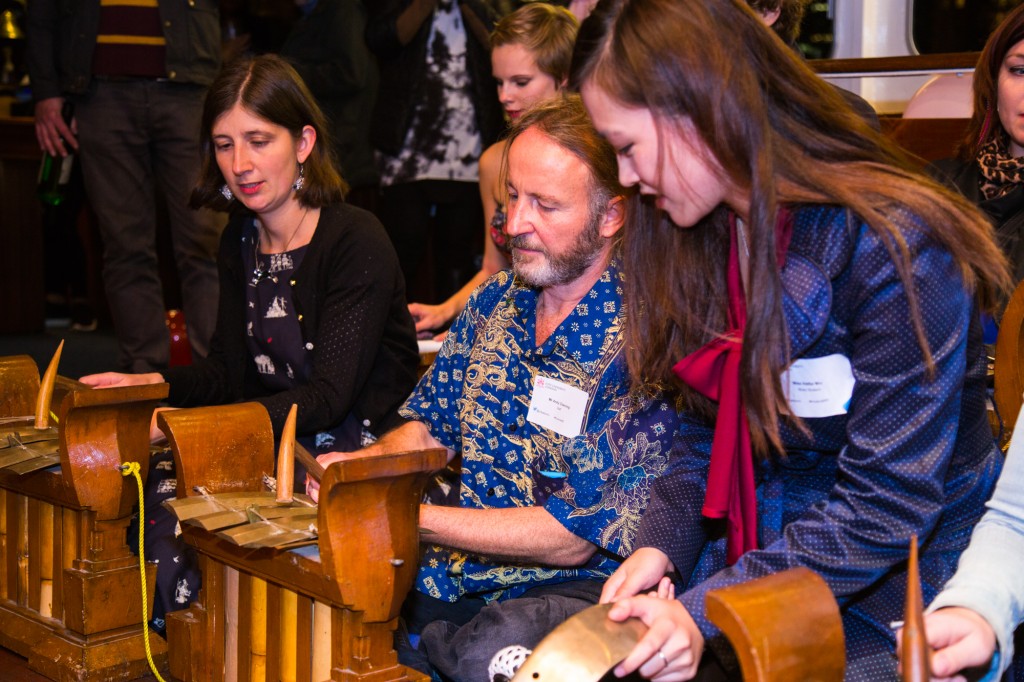On Wednesday June 1st at City University, a public debate took place on the question ‘Are we all Ethnomusicologists now?’ Taking as a starting point Nicholas Cook’s essay ‘We Are All (Ethno)musicologists Now’, in The New (Ethno)musicologies, ed. Henry Stobart (Lanham, MD: Scarecrow Press, 2008), pp. 48-70), the issues were debated by Amanda Bayley (Bath Spa University), Tore Lind (University of Copenhagen), Laudan Nooshin (City University London), Ian Pace (City University London), and Michael Spitzer (University of Liverpool), and was chaired by Alexander Lingas (City University London).
The position statements provided by Nooshin and Pace have been placed online: Nooshin’s is here, and Pace’s is here. Pace is preparing a longer article on the subject, and both these protagonists may at some point respond more directly to the other’s arguments.
The debate was filmed, and this will be placed online presently. Here are two accounts/responses, from City MA Music student Rachel Cunniffe, and City graduate Ben Smith.
Rachel Cunniffe, Debate: ‘Are we all Ethnomusicologists Now?’
On Wednesday 1st June, as part of the music department’s year-long 40th anniversary celebrations and the City Summer Sounds Festival, the first of three public debates was held in the performance space. The motion was based upon the famous suggestion made by Nicholas Cook in 2008 that due to blurring boundaries between musicology and ethnomusicology, “we are all ethnomusicologists now.” The questioning of this assertion, accompanied by discussion of tensions which remain between the two disciplines to the present day led to an interesting and heated debate.
The event was chaired by Alexander Lingas (City University), and the panel was comprised of Amanda Bayley (Bath Spa University), Tore Lind (University of Copenhagen), Laudan Nooshin (City University), Ian Pace (City University) and Michael Spitzer (University of Liverpool). Taking to the microphone in alphabetical order, Amanda Bayley was the first speaker. She noted the importance of understanding music as a social creative practice, and the achievements of the ethnomusicological discipline in examining what music can tell us about the world through its interdisciplinary approach. Amanda also advocated Cook’s suggestion of an ‘intercultural musicology’ which would encompass a greater interaction between ethnomusicology and music history. Finally, drawing from her ethnographic study of a String Quartet rehearsal in 2011, Amanda noted how ethnographic approaches can also contribute to understanding the history of music and music pedagogy.
Tore Lind then spoke of the ways in which ethnographic results may come with a degree of unreliability, yet interaction with participants and gathering a range of views will undoubtedly provide greater insight to the topic in question. He also suggested that while he is ‘an accomplice’ in the construction of the musical realities he presents, this does not deem the work invalid or unreliable as musical knowledge is socially generated. Laudan Nooshin followed this with a discussion of the difficulties in defining ethnomusicology, its complex identity and history, and the exclusion of other sub-disciplines in music through the creation of this binary, such as music education or popular music studies. Laudan also presented some ethnographic work which had been undertaken for this debate; some participants felt the boundaries have blurred significantly though some considered prejudice and exclusion towards ethnomusicologists to remain. She concluded by noting that many musicologists have been attracted to and utilised ethnomusicological approaches in their work, mentioned the increasing number of ethnomusicologists being hired in music education and the expanding role of ethnomusicology in the curriculum, and finally suggested that in place of criticism scholars of both disciplines should consider how elements of each discipline can enrich the other.
Next, Ian Pace discussed issues surrounding the ethnomusicology of Western Art Music, many of which will be expanded upon in a forthcoming article. He expressed concerns for the subsumation of musicology into other disciplines, as a result of the multi-disciplinary and sparsely ‘musical’ approaches of ethnomusicology. The lack of attention paid to the actual sound material in much ethnomusicological work, Ian argued, is also contributing to the deskilling of the profession and therefore questions whether the descriptive nature of this work has a place in high level scholarship. Ian also noted that ethnomusicology should not be devoid of critique for political reasons. Finally, Michael Spitzer asserted that Cook may have been optimistic in his statement, and claimed that musicology has come under attack for its ‘inadequate [analysis of] social mediation.’ To this he responded with the question, what’s wrong with formalism and the analysis of sound? Michael concluded by criticising the ‘zero-sum game’ which he claimed to still exist between ethnomusicology and musicology.
Presentations were followed by questions from the floor, which ignited much lively discussion. Passion and enthusiasm for the topic was clear, and one audience member fittingly concluded the evening by thanking the music department at City University for hosting a forum in which these issues can be discussed.
Ben Smith, ‘Are we all Ethnomusicologists now?’
In what was an interesting and lively evening, with a number of intriguing points brought up by the panel members, I would like to detail and comment upon the wider implications of three particular ideas which resonated strongly with me. These were: A defence of formalism from Michael Spitzer, and Ian Pace’s critique of what he called ‘musicology-without-ears’ and the implications of non-critical musicology towards Western Art Music and commercial pop music.
Anti-anti-formalism
In bemoaning the fear of formalism within ethnomusicological work, Spitzer spoke convincingly about the importance of musical analysis, outside the consideration of social or cultural context. Bringing in some Pierre Schaeffer as to how certain modes of listening can move towards bracketing out real-world elements of music (that is, the music’s sign-content, so that we may consider the ‘inside of the sound’), he said how, if we wish to move closer to a deep understanding of musical content and musical structure in-and-of-itself, we obviously must consider the object of study on its own terms. Rather than making a case for or against the possibility of total musical autonomy (and the implications of this for musical scholarship) formal music analysis can be simply seen as one crucial element of a multi-faceted toolkit required to consider a musical work in its totality. The removal of formalist approaches to musical analysis does not realise any liberal vision of negating some out-of-date approach to ‘great works’, and the opening up of the musicological discipline to consider the music of the masses, but rather only achieves in bracketing out an invaluable musicological skill.
Linked to the worrying attitude to formalism Spitzer mentioned is the unquestioned assumption that an autonomous consideration of music is impossible. It is clear where the canonic figures of ethnomusicology stand on this matter (Pace quoted John Blacking and Bruno Nettl in his talk); and that music is utterly inseparable from culture has been taken as dogma by many later writers. This received wisdom towards musical autonomy has had a grave result for the amount and quality of musical considerations proper within ethnomusicology, resulting in what Pace categorized as ‘musicology-without-ears’.
Musical Multiculturalism
In his talk, Pace touched on a number of reasons as to the disappearance of critical thought and consideration of the music itself in certain ethnomusicological writings. One possible reason given was that western, post-colonial guilt acts as an inhibitor to critical engagement (something that becomes more troublesome – not to mention redundant – when applied to non-colonial music). This misguided liberal notion creates differing intensities of critique, depending on whether the object studied is deemed ‘elitist’ (read: Western Art Music) or ‘ethnic’ (or popular). Scholars, increasingly aware of the play of social power relations, are all too worried of the implications of appearing ‘ivory towered’ and delivering proclamations against ‘low culture’ from on high. Although I would not want to remove a needed sensitivity from academic discourse, such liberal treatment can in fact serve to patronize the so-called minority culture being studied. It suggests some cultures should not be subject to the same scrutiny as others; that there can be no universals. The over-careful handling of other musical cultures and cultural practices does them, and their practitioners, a disservice.
Writers such as Kenin Malik, Amartya Sen, and Slavoj Žižek have pointed out how the kind of multicultural liberalism described above can not only be condescending, but also paradoxically aligned with right-wing thought. Malik writes that both ideologies similarly ‘see cultures, or civilizations, as homogenous entities. Both insist on the crucial importance of cultural identity and on the preservation of such identity. Both perceive irresolvable conflicts arising from incommensurate values.’ Žižek has said the same, but frames it in another way: Political differences become cultural differences, not to be overcome or challenged, but simply ‘tolerated’.
Alongside post-colonial guilt (or the latent racism Malik and Žižek allude to) is, I believe, a sentimental primitivism. An interesting political example of this is the figure of the ‘crying Indian’ which gained prominence in the 1970s. Essentially rehashing Romantic notions of the ‘noble savage’, this hippy trope defined Native Americans as a symbol of a ‘pure’ lost humanism, mythically connected to and in harmony with the world. In fact, studies over the last few years have shown that widespread de-forestation and the hunting-to-extinction of various animals by early Native American tribes occurred on a scale that greatly exceeded the practices of the colonial settlers. Similar primitivism in ethnomusicological work is not hard to find (here is Steven Feld on his work with the Kaluli tribe of Papua New Guinea): ‘With characteristic patience, Jubi [Feld’s native helper] was imitating calls, behavior, and nesting. Suddenly something snapped: I asked a question and Jubi blurted back, “Listen – to you they are birds, to me they are voices in the forest.”’ This primitivist aspect of ethnography also contributes to the removal of proper musical consideration, as the music itself is romanticized as well as the people creating it. The musical object is firstly deemed untouchable, and further, any element of the ‘sound itself’ which provokes a response in us is deemed ineffable. In a kind of postmodern turn back towards romanticism, the articulation of ‘how’ music works is seen as ultimately impossible to understand, and if so, why bother trying?
Malik has written extensively on the history of multiculturalism, particularly in Britain. One of his descriptions of the reasoning behind such cultural turns in left–wing thought is worth quoting at length, as it drives right at the heart of issues mentioned above:
‘To be radical today is to display disenchantment with all that is ‘Western’ — by which most mean modernism and the ideas of the Enlightenment — in the name of ‘diversity’ and ‘difference’. The modernist project of pursuing a rational, scientific understanding of the natural and social world…is now widely regarded as a dangerous fantasy, even as oppressive…In place of [a]…progressive universalism…contemporary Western societies have embraced a form of nihilistic multiculturalism.’
Putting the point even more plainly, Sen has suggested a more apt name for multiculturalism as it stands would be ‘plural monoculturalism’, since multicultural ideas and policies can serve only to increase the isolation between different people and cultures. This is precisely what so much ethnomusicological study does – in treating the studied musical culture with a patronizing reverence and refusing to delve into the substance of the music itself, it ‘others’ the culture in question even more strongly. The multicultural aim to break down the walls of musical formalism and academic elitism, actually creates a greater distance between the academic and the people studied. As Ben Watson points out: ‘replacing musicology with social anthropology (Georgina Born) or sociology (Sarah Thornton) actually drives thought and its object still further apart’. Watson extends this argument, specifically dealing with commercial pop music, by noting how the turn away from academic ‘elitism’ is not only misguided, but redolent with scholarly pitfalls:
‘In the same moment that it claims to ‘break down cultural barriers’, the sociological turn reproduces a class division between the analytical academic and the musical culture ‘out there’. Appeals to the ‘popular’ promise to solve the ‘elitism’ of classical music, but actually reproduce it. What is confusing is that the opposite of the ‘popular’ is concealed: this is because it is the very discourse employed by the analyst. Analysts may declare that they ‘really like’ the music under consideration – Abba’s ‘Fernando’ or The Adverts’ ‘One Chord Wonders’ – but they also speak a meta-language that stands above pop music and its audience. The guilt of intellectual privilege is not to be wished away by changing the object of scrutiny.’
When no serious substitute is suggested for analysis (or consideration of sound), its removal from scholarly work leaves a black hole, often filled with empty jargon, and an approach that sidesteps value judgements at all costs does nothing but allow for the unchallenged stagnation of culture. Across all scholarship, it is worrying when critical perspectives disappear, but, as mentioned above, this problem is amplified when dealing with western music, and particularly so with commercial pop music. With the latter, since the object of study lies within a market-controlled industry, studies that fail to incorporate a proper dialectical critique, can end up essentially perpetuating the hegemonic economic forces which make up in the background socio-cultural structures of such music.
Focus Group Musicology and The Pop Industry
The movement away from a so-called academic elitism shares parallels with the turn towards populist politics under Bill Clinton and New Labour in the 1990s (what Adam Curtis describes as a politics by ‘focus group’). Pace touched upon the ethnomusicological adoption of this, mentioning the long quotations from less-than-expert sources (often little more than cherry-picked vox pops) found in a lot of ethnographic work he had read, which the authors used as evidence to form scholarly conclusions.
As well as determining what people thought on various issues of the day, politics by focus group also played a part in deciding the issues themselves, that is, populism became a yardstick for measuring political importance. The same has become true in some academic work. Pace made mention of a telling quote from Nicholas Cook in this regard, in which Cook argues that musicologists should ‘study social reality as they find it’: ‘The point is not that Madonna is good or bad but that she’s there’. Surely it should be obvious that treating any object as somehow valuable simply because it exists is a worryingly regressive formulation, and blindly panders to market forces. This, deeply negative, cultural effect of combining a populist approach with the study of commercial pop music is symptomatic of a more general problem with postmodern thought. Terry Eagleton notes that: ‘Postmodernism, among other things, concerns the cherishing of cultural difference; it is therefore an irony beyond anything flaunted by its own fictions that it is now actively contributing to the remorseless cultural homogenization of the globe’.
And so, with some pop music scholarship, the structural problems of ethnomusicological study detailed above become layered with the further complication of an uncritical openness towards the objects of study. This can be coupled with (I will expand upon this below) a fetishization of musical products as commodities, which divorces them from historical context, and fails again to critique the cultural and economic forces that surround the music.
In Performing Rites, Simon Frith writes positively(!) that pop music ‘holds consumption at the moment of desire, before it is regretted’; that its ever repeating novelty has nothing to do with the recycling of commercial trends cynically employed by record companies, but simply that it is a ‘momentary diversion’ from the real world (amusingly, a search for the word ‘neoliberal’ throughout the book comes up empty). Indeed, a concluding line of Frith’s, that music allows us to ‘live in the present tense’ is a relegation of musical function to pure escapism. This is to say that the great thing about music is only that is stops us worrying – or even thinking about – our outside existence. By utterly ignoring the effect of the market on the consumer, and allowing music simply to function as ‘the negation of everyday life’, Frith misses so much of the social totality of the hegemonic culture which has such an insidious effect on the production and (trigger warning: value judgement) quality of much commercial music. Read even more unfavourably, Frith’s ‘present tense’ analogy can be equated to pure commodity fetishism (compare it with Walter Benjamin’s term Jetztzeit (now-time), used to criticise the ossified experience of commodity capitalism). This fetishization of the present in Frith creates a system of thought that cannot engage in a dialectic way with the innate temporality of history.
In another article entitled ‘What Is Bad Music?’, Frith displays his post-colonial /multicultural /postmodernist attitude proudly. Against the insinuation of his provocative title, Frith is quick to move far away from any qualitative judgement of music, writing that ‘bad’ can only be defined according to individual truths; which form part of one’s own ‘fandom’ of any particular brand of music. He describes, for instance, how some on the left decry the misogyny and homophobia of some rap music (without further comment) along with a few other examples, before shifting the focus onto how ‘badness’ is ‘performed’ differently by various musico-social groups, as if to suggest that homophobia and misogyny are concerns purely for ‘the left’ to worry about. It is precisely the kind of thinking of the ‘plural monoculturalist’ Sen and Malik describe. This is (but one example of) the kind of scholarship which sees all cultures as equal, but not all humans. Surely the inverse position is true.

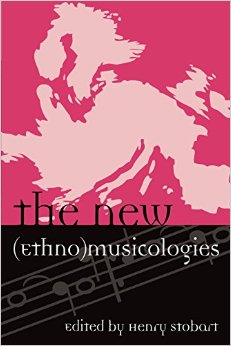
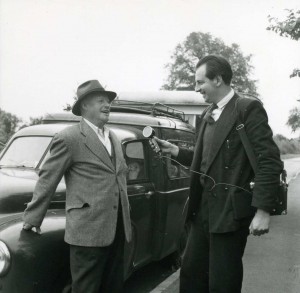
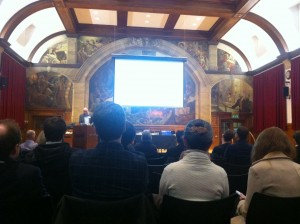
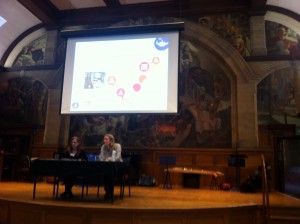
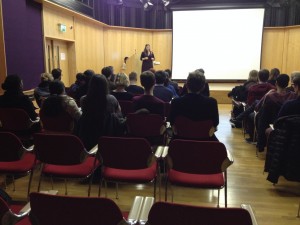
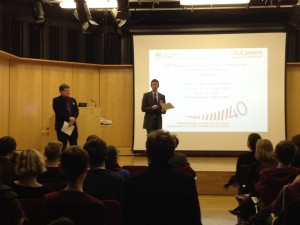
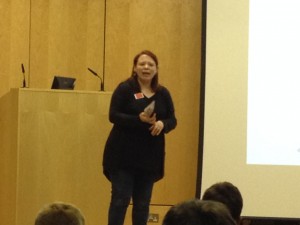
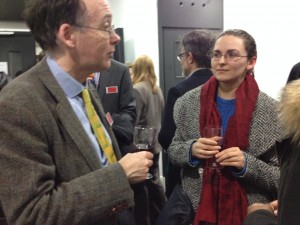
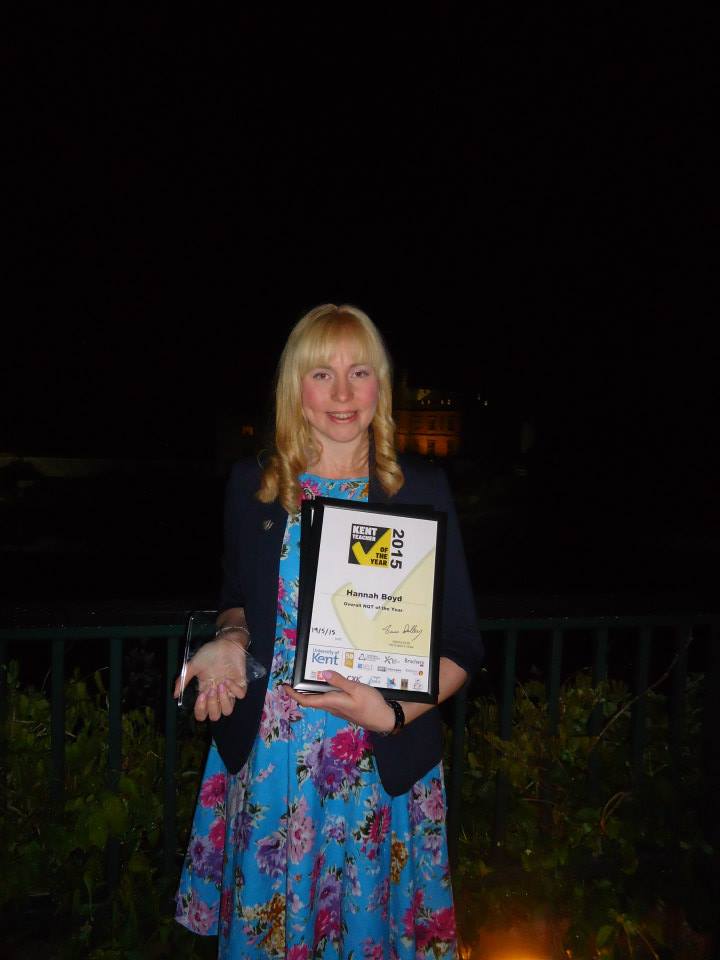

![11822538_10101260928266809_7469491810735383272_n[1]](https://blogs.city.ac.uk/music/files/2015/12/11822538_10101260928266809_7469491810735383272_n1-1c9wxvi-200x300.jpg)

